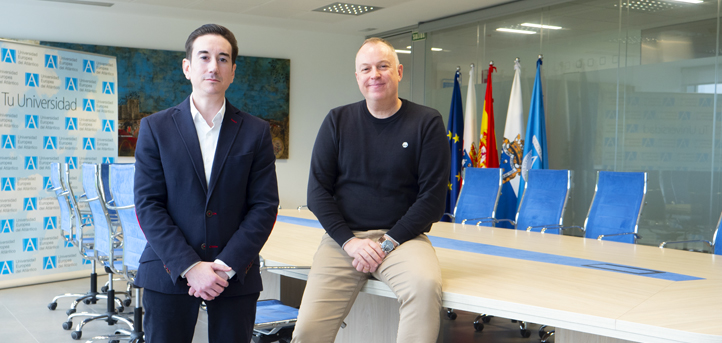The professors of the Universidad Europea del Atlántico (European University of the Atlantic, UNEATLANTICO) Josep Alemany, academic director of the Degree in Primary Education and of the University Master’s Degree in Teacher Training for Compulsory Secondary and Bachelor’s Education, Vocational Training and Language Teaching, and Dr. Álvaro Velarde, teacher,researcher, and academic coordinator of Postgraduate Studies in the Sports Area, publish a research on the influence of e-learning training on the acquisition of skills in basketball coaches in Cantabria.
The main objective of this study was to analyze the influence of e-learning on the acquisition of competencies in basketball coaches in Cantabria. Throughout the paper, it is exposed that the current landscape of basketball coach training shows a growing demand for innovative training models and emerging pedagogies, among which are the methodologies based on e-learning.
The study sample consisted of fifty students from these courses, all over 16 years of age (36 males, 14 females). Of these, 16% resided outside the autonomous community of Cantabria, 10% resided more than 50 km from the city of Santander, 36% between 10 and 50 km, 14% less than 10 km, and 24% resided within the city of Santander. The data was collected through a Google Forms survey distributed by the Cantabrian Basketball Federation to the students of the training courses. Participation was voluntary and anonymous.
The survey, which consisted of 56 questions, was validated by two sports and health physicians and two senior basketball coaches. The data collected were processed and analyzed using Microsoft® Excel version 16.74, and the results were expressed as percentages.
The analysis revealed that 24.60% of the students trained using the e-learning methodology considered themselves fully qualified as basketball coaches, in contrast to 10.98% of those trained using the traditional classroom methodology.
The results of the study provide information on important characteristics that can be adjusted and improved within the educational process investigated. In addition, the study concludes that e-learning training effectively qualifies basketball coaches in Cantabria.
The full article is available at this link. To consult other scientific articles, visit the UNEATLANTICO repository and the university’s research news portal.


